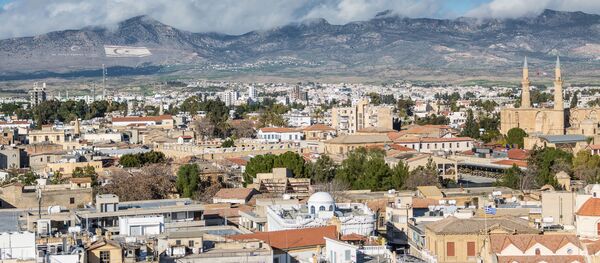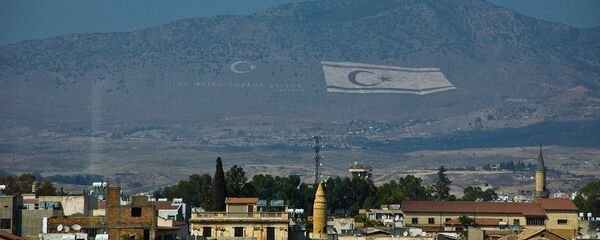In an interview with Sputnik Turkey, Dayioğlu said that the main disputed issues are the possible withdrawal of guarantees ensured by the three guarantor countries — Greece, Turkey and the United Kingdom — as well as territorial problems.
"The main problems that exist today in the Cyprus negotiations are connected with guarantees and territories. In the current circumstances the prospect of the abolition of guarantees causes concern in the Turkish Cypriot community," the official stressed.
"Today we are witnessing how nationalist sentiment is growing in the southern part of the island. Earlier, the ultra-right National People's Front (ELAM) was quite small, but today they are represented in the parliament. Given this trend in the political life of Cyprus, the Turkish Cypriot community calls for the maintenance of existing guarantees. If the Greek Cypriot side really wants to settle the issue, it must respond to the aspirations of the Turkish Cypriots and eliminate such threats," he added.
The Cyprus Republic became divided back in 1974. An attempted coup d'état organized by Greek Cypriot nationalists which sought to reunify with Greece prompted a Turkish military invasion of the island. As a result the so-called Turkish Republic of Northern Cyprus was established. The entity has been recognized only by Turkey, while the international community condemned the move.
The status-quo on the island is ensured by guarantor countries — Greece, Turkey and the United Kingdom. Britain plays an important role as it ruled Cyprus until its independence in 1960, and has military bases there.
However, Dayioğlu believes, that the British military presence on the island is another great concern in the current negotiations.
"The current process involves not only Cypriots, but also the guarantor countries, which affect the situation and have their own interests in the region that often contradict those of the Cyprus Republic. It is unclear what position Greece and Turkey will take. It is also unclear what will happen to the territories under the control of Great Britain. Let's see if London is ready to give up its bases on the island for the sake of the peaceful coexistence of Cyprus' residents," the politician stated.
"If we are talking about a sovereign and independent Republic of Cyprus, there shouldn't be any British military bases on the island," he added.
In accordance with international law the Cyprus Republic is de jure a sovereign state and a member of the European Union. De facto, the country is divided into four parts: the self-declared Republic of Northern Cyprus, the Greek-dominated Cyprus Republic, the UN buffer zone and Britain's Sovereign Base Areas (SBA) of Akrotiri and Dhekelia.
After a series of futile attempts to reach a compromise on the Republic's reunification the negotiations were resumed in February 2014. Still, in November 2016, they broke up because of a difference of opinions on territorial issues.




